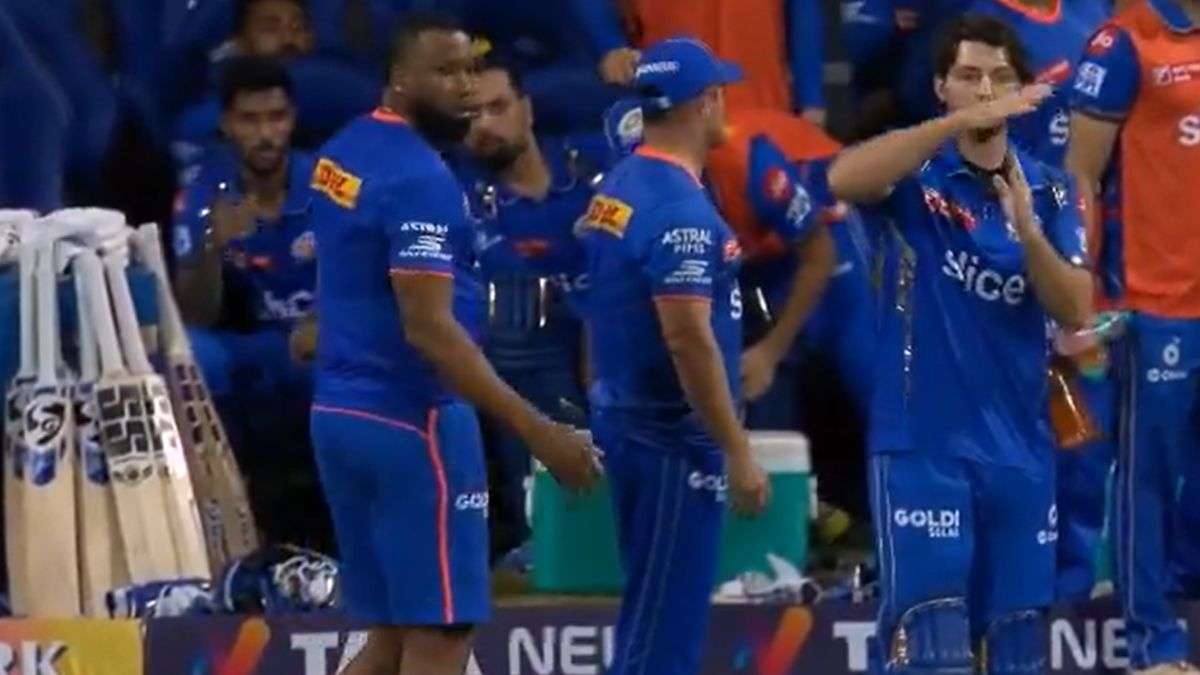
[ad_1]

Mumbai Indians succumbed to their fourth defeat of IPL 2024 on Sunday (April 14) dropping to Chennai Super Kings (CSK) by 20 runs at the Wankhede Stadium. They could not chase down the goal of 207 runs regardless of Rohit Sharma scoring a century and batting by way of the innings. The high-voltage encounter additionally witnessed a serious controversy with the hosts not being allowed the take the strategic time out at the finish of the fifteenth over.
There were weird scenes at the MI dugout when head coach Mark Boucher, batting coach Kieron Pollard and Tim David stepped on the subject assuming that the time-out has been taken. But the fourth umpire requested them to go off the subject with the dwelling staff seemingly not happy with the umpire. MI wanted 75 runs off 30 balls and misplaced the wicket of their skipper Hardik Pandya on the third supply earlier than the time-out was ultimately taken in the center of the over. Boucher and Pollard were evidently not happy as they were seen gesturing in the direction of the umpire two balls earlier than the finish of the fifteenth over relating to the time out however the umpire nonetheless did not enable them to take it.
What is the precise rule relating to the strategic time-out?
For the unversed, the strategic time out is allowed for the fielding staff from over 6 to 9 whereas the batting staff can take it from over 13 to 16. Now in accordance to the IPL taking part in situations 11.6.5, every time out has to be known as both by captain or the batters at the wicket notifying certainly one of the two on-field umpires or the fourth umpire. Also, the umpire has to be instructed about it earlier than the bowler delivers the closing ball of the over. Also, if the captain or the batter does not elect a selected over for the time out, the umpire will formally take it at the finish of ninth and sixteenth over. Another most essential factor is, no different staff consultant can request the time-out apart from the captain or the batters at the wicket.
Here’s what the clause 11.6.5 says: “Each time-out must be known as by solely both (a) the captain of both staff or (b) the batter at the wicket (as applicable in accordance with clause 11.6.3 (a) and (b) respectively) notifying certainly one of the two on subject umpires or the fourth umpire, in every case earlier than the bowler begins his run up to ship the closing ball. Any notification as soon as the bowler has began his run up or if he has no run up, his bowling motion will not be legitimate and the captain shall be requested if he desires the time out to take place after the finish of the following over. If both the fielding captain or the batter respectively does not make an election, the umpires will name the time-out at the finish of the ninth and sixteenth over respectively.
“For the sake of clarity, no other team representative is permitted to advise or request a time-out other than the captains of either team or batter at the wicket.”
In this case, Mumbai Indians coach Boucher and Pollard had knowledgeable the umpire of the time out and not Hardik Pandya who was in the center. It ought to’ve both been Hardik or Rohit telling the umpires that they required time-out at the finish of fifteenth over. But that did not occur and therefore, the umpire did not enable MI to take the strategic break then.